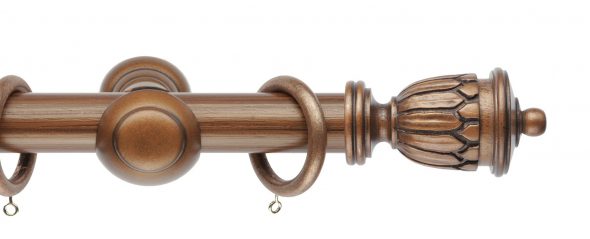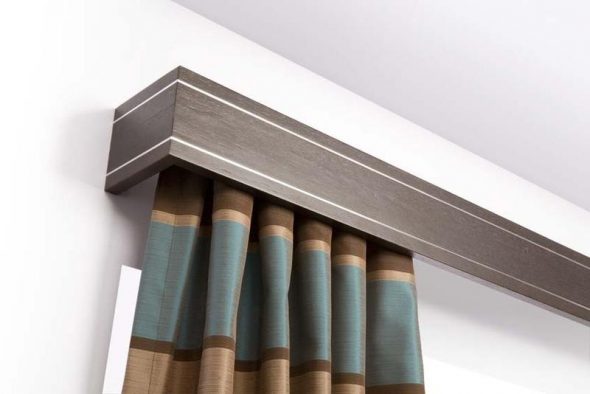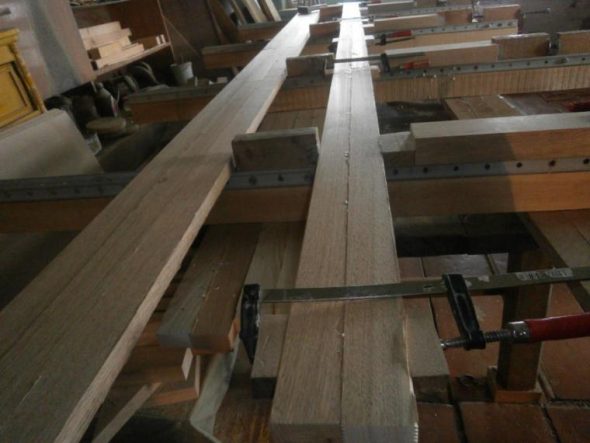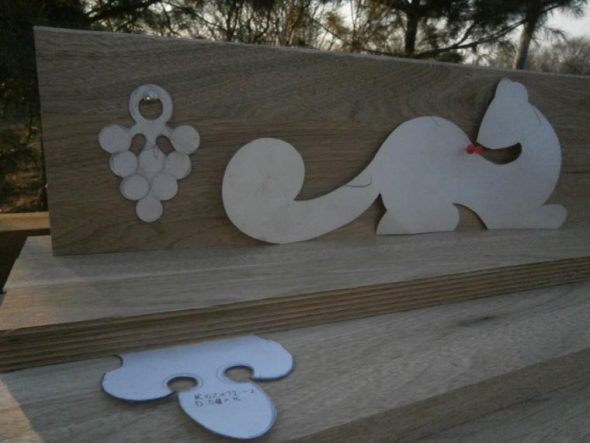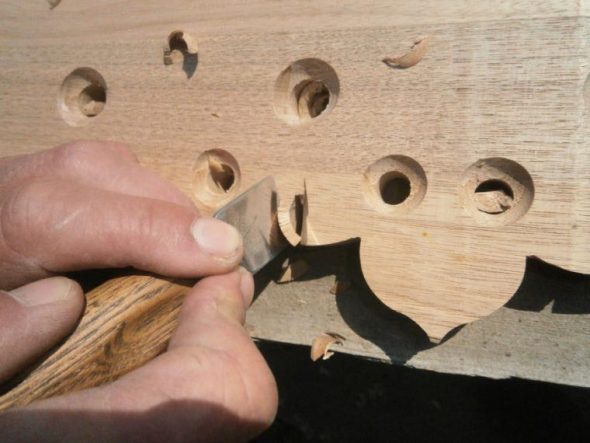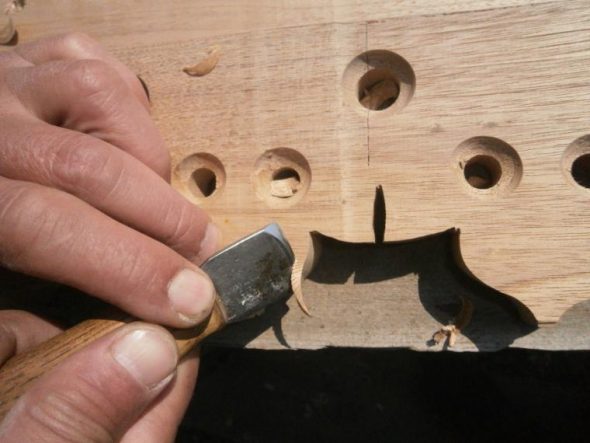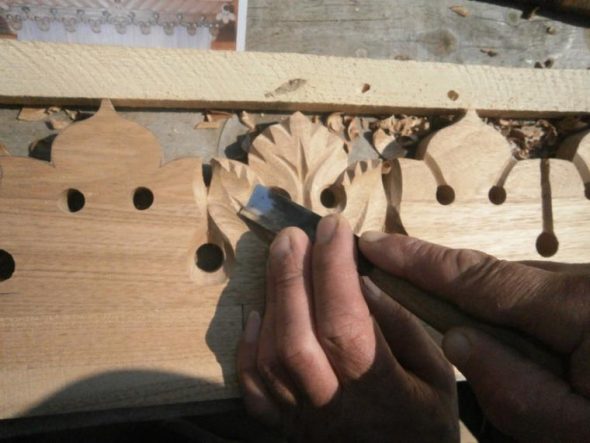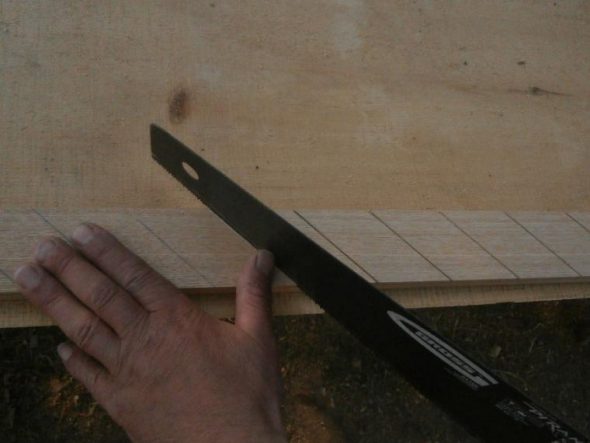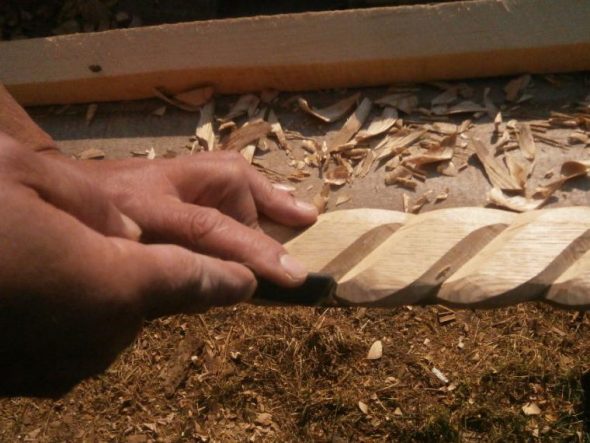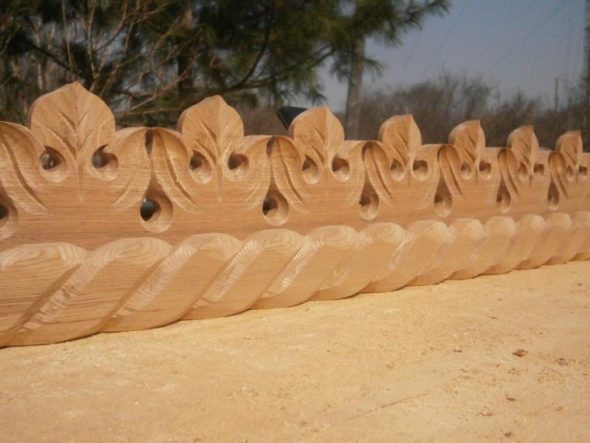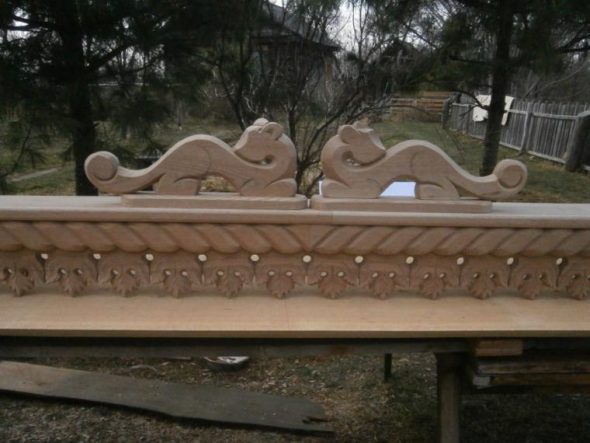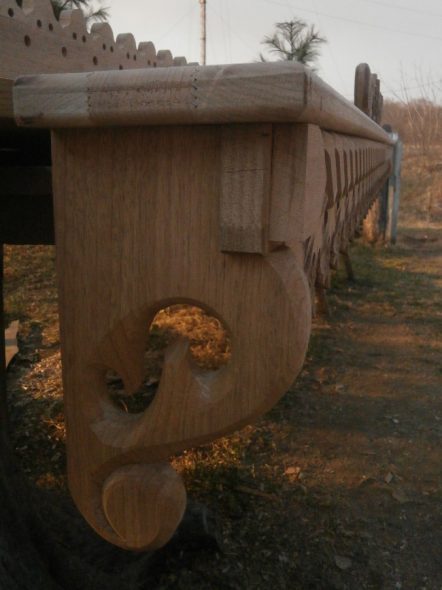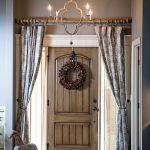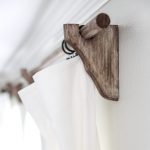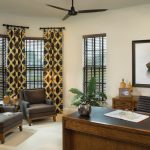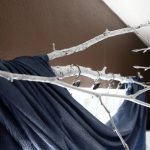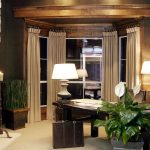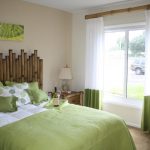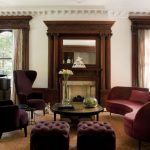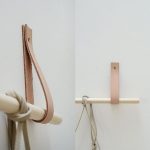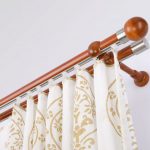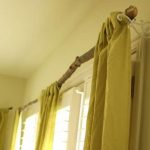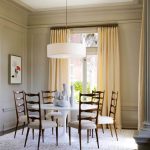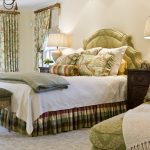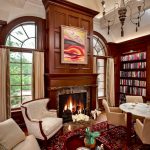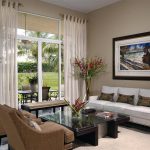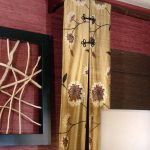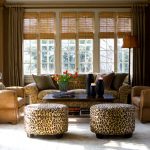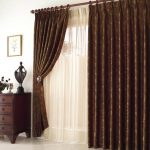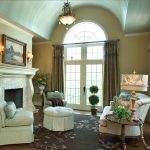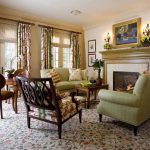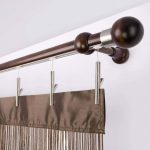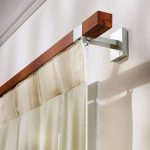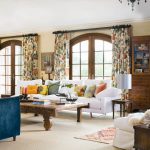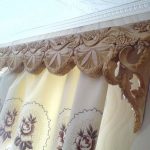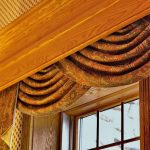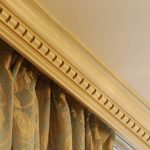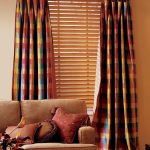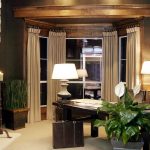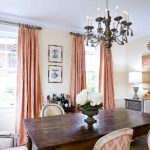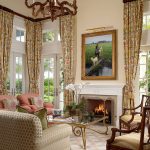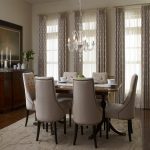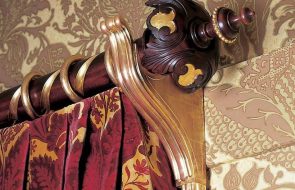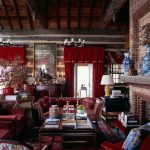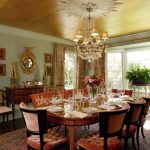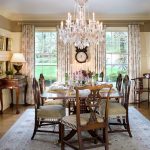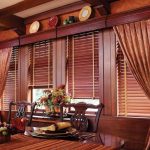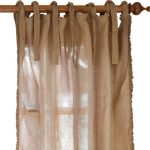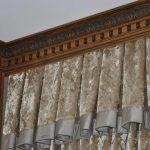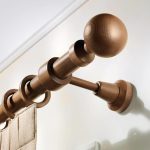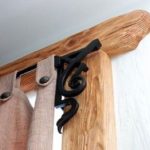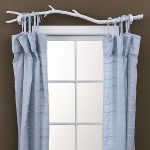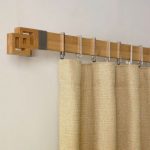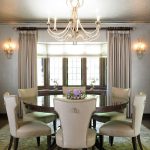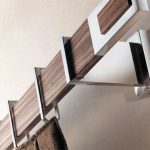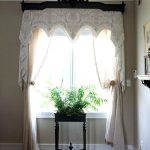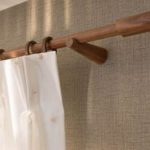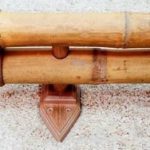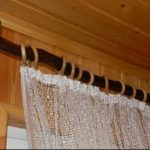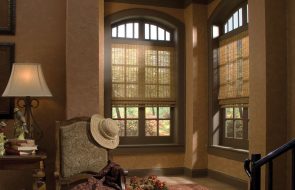Curtains occupy not the last place in the interior of the room. They are not only a decorative design of the room, but also perform a protective function of the room. To attach the curtains in place, you need cornices, the choice is of no small importance, because there are many varieties, made of different materials, designs, sizes, shapes.
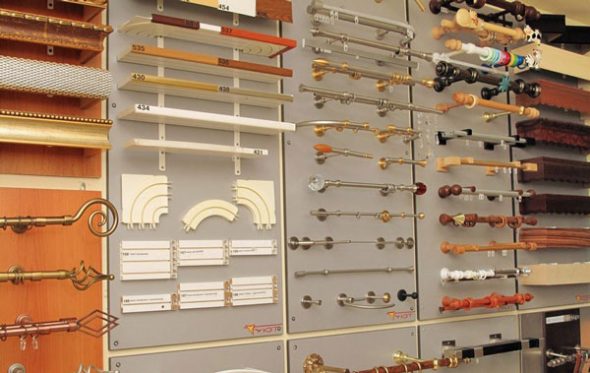
Wooden curtain rods are the most popular, let's take a closer look at what they are.
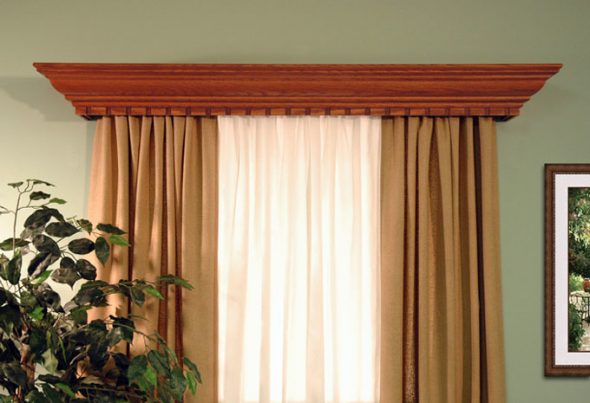
Wooden cornices have been used for a long time, they were among the first to be used to change the interior decoration, they are installed in living rooms, bedrooms, children's rooms, kitchens.
Wooden curtains are made from valuable tree species: mahogany, oak, walnut, beech, redwood, chestnut, pine. They have a beautiful aesthetic appearance, are valued for the fact that nature has endowed them with unique lines, patterns, are durable, strong, used both with heavy curtains and with light curtains, lambrequins.
Using varnishes, paints, and tonal coatings, these species are imitated, decorated with hand carving, and covered with gilding.
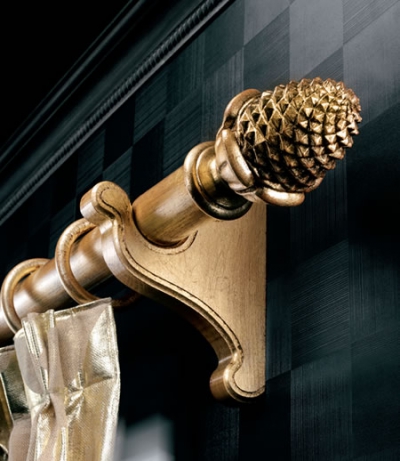
The cornices are in harmony with both classical and modern styles.
Wood is an ecological material, does not contain substances harmful to human health, which is a plus in use. But there are disadvantages: they do not tolerate moisture well, over time, the rod rings become worn, and the coating needs to be renewed.
Curtains made of wood require regular maintenance, otherwise over time they will become a haven for wood parasites and lose their appearance. Installing curtains is easy, they have simple designs and convenient fastening elements.
Content
Design Features
Modern manufacturers offer many options for cornices with different fastenings and designs; the choice depends on:
- interior style and decor;
- curtain compositions (rows, lambrequins);
- window shapes and areas;
- area of the premises;
- Methods of fastening to the cornice: hooks, clamps, rings.
According to the type of fastening, they are divided into the following types.
Ceiling
This type of fastening is used in rooms with low ceilings; when a curtain is hung, it creates the impression that the room is higher, the effect of an elongated space.
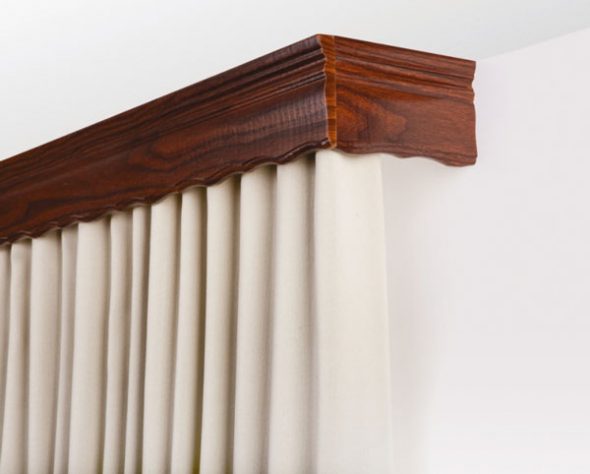
Wall mounted
This type of cornice is attached to the walls, it is easy and does not take much time. It is used in rooms with high ceilings.
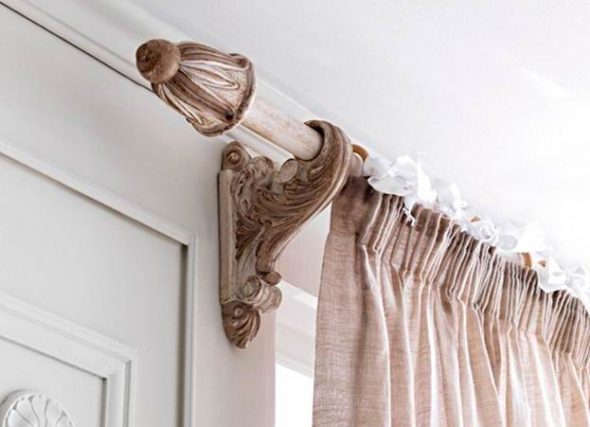
Baguette
This design is a plastic profile or a row of strings, covered with a beautiful wooden strip on top. The surface is covered with carved elements, patterns and other eye-catching components. The purpose of this strip is to cover the internal structure: strings, rings, folds of curtains, sometimes even the unevenness of the walls.
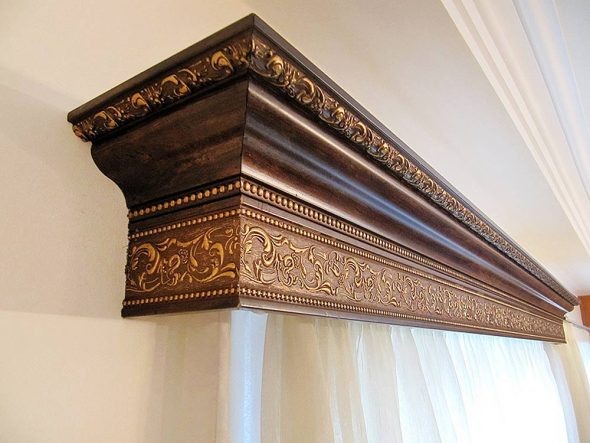
Wooden cornice designs are differentiated by the number of rows.
Single row
The simplest and cheapest, consist of one rod, lightweight for curtains. Used in the kitchen or other room where thick heavy curtains are not needed.
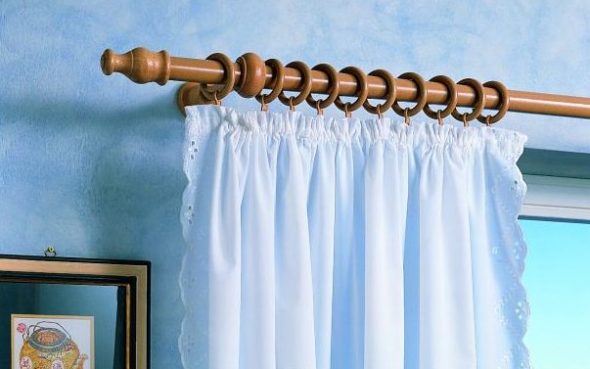
Double row
These curtains are the most common and can be used in any room; you can hang thin tulle or thick curtains.
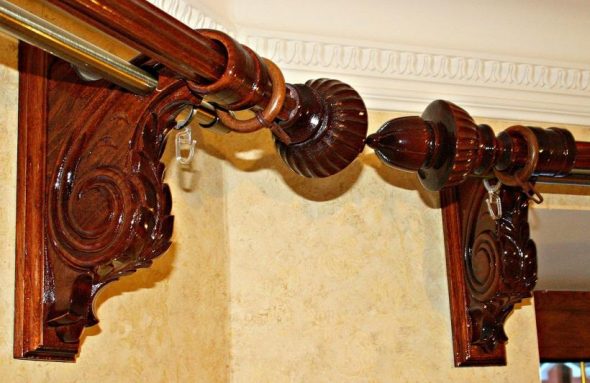
Three-row
To create a multi-layered rich composition, three-row cornices are used, lambrequins are added to the tulle and curtains.
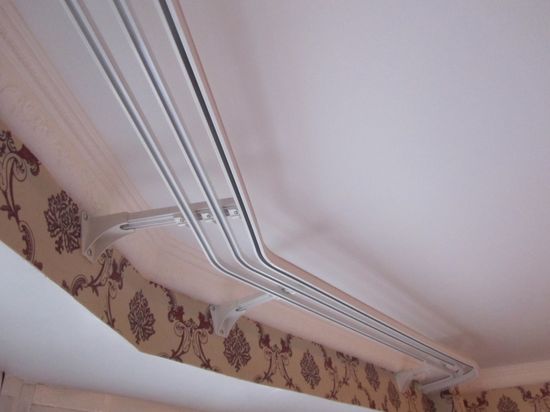
Cornices also have different shapes:
- Round. These are the most practical, the rings move easily, softly, smoothly along the rod, the interior seems more cozy and comfortable.
A round rod is the most common type of curtain rod. - Rectangular in the form of a bar. This design is less practical, it moves along the mounting bar with some difficulty, you can install lighting, creating a romantic atmosphere.
A wooden cornice can also have the form of a plank, the edges of the crossbar are decorated with square or rectangular tips.
Attention! You can buy and fix the cornices yourself, but still, when choosing such an important accessory in the design of the room, it is better to consult with experienced workers of specialized stores and companies.
The staff will help you choose a product that suits the room design, style, type of fabric, and what fasteners are best. Professionally installed curtains are safe and durable, so you don't have to worry about them falling at some point.
Length of products
Selected individually. Depends on the type of room, area, style and structure of the fabric.
For small rooms, use narrow and preferably light curtains, without carving, which will harmoniously fit into the interior. But in large rooms, you can use your imagination. In any case, when choosing, the length should be 40-50 cm wider than the window opening. If the window is large, in order to avoid sagging of the wooden cornice due to the weight and weight of the curtains, use additional fasteners, intermediate holders.
Wooden Curtain Styles
The achievements of modern technologies allow the use of natural wood, creating products from it with various colors and shades, ranging from natural tones to black and white, in different styles they use their own color scheme.
In the eco and minimalist styles, light shades of wood look beautiful and are used in small, low rooms.
Baroque, Empire and Classic styles are full of luxury and wealth, and are made in dark tones and used in pompous, elite places.
Scandinavian does not have a specific color scheme and depends on the design of the room, but preference is given to white tones.
Italian curtains in red wood tones, carved curtain inserts, intricate patterns.
Important! It is not recommended to use cornices with a sharp contrasting color in relation to the curtains and the room's decoration, but a slight difference in shades is acceptable.
Wooden curtains kit
Standard set:
- rods 1-3 pcs;
- brackets;
- a set of parts for fastening curtains (hooks, rings, eyelets, clamps;
- decorative tips, fleurons.
Taking into account all the nuances when buying wooden products, the interior of the room will acquire a unique, individual design. We could stop there.
But wooden curtain rods can be made with your own hands.
Carved cornice at home
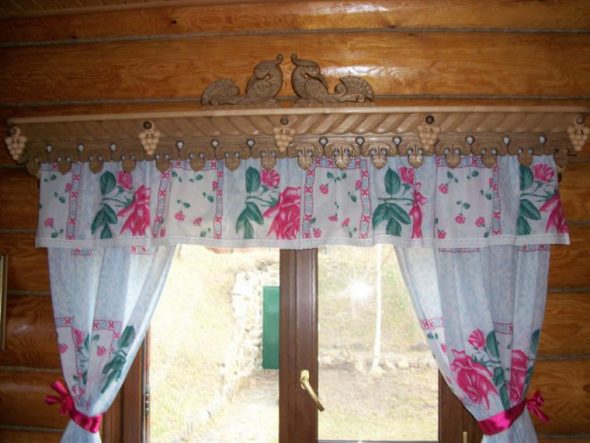
We are preparing a two-rod curtain rod with carved brackets in the shape of a bird:
- take a planed board 1.5 meters long, the width depends on the stencil, the thickness is 2.5 - 3 mm;
We saw it into bars and glue it together so that our carved cornice does not warp or twist. - the bracket stencil is applied to the board;
First, draw and cut out a template from cardboard and transfer it onto the shield. - a thin drill marks the centers of the holes that are part of the ornament, a thicker drill marks all the details intended for further processing with a jigsaw;
We begin the carving itself: we cut the chamfers at all the holes with a semicircular chisel and cut the chamfer at the leaves with a straight chisel, separating them. We chamfer the entire cornice with a wide semicircular chisel - the ornament is first cut out along the inner contour of the product, then along the outer one, and all the blanks are prepared in this way;
We shape the leaves, cut out the veins and teeth - The uneven areas are corrected with a chisel, sanded with sandpaper, and the final defects are removed with a grinding machine;
For carved rope we make cuts Now we cut out the cuts, removing the excess with a wide chisel, we clean up our wooden carved rope (we give it a full volume) - Two holes are made for the rods, one in the center of the bracket, the other on the bird's neck.
The main contours of the cornice are carved leaves and rope. We make figurines of birds or animals for decoration We make the side panels from several glued bars so that they do not dry out, crack, or warp.
To attach the product to the wall, a hanger is attached to the bracket and painted.
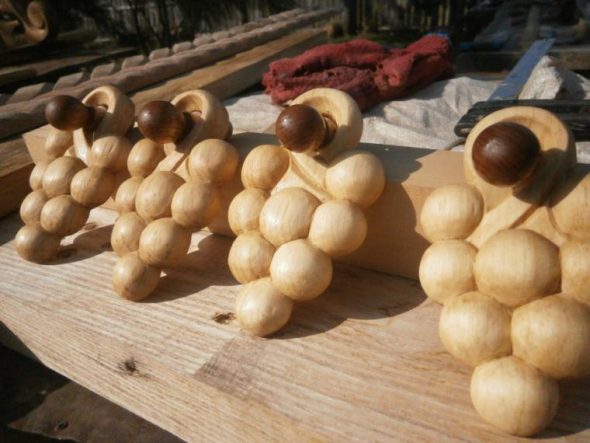
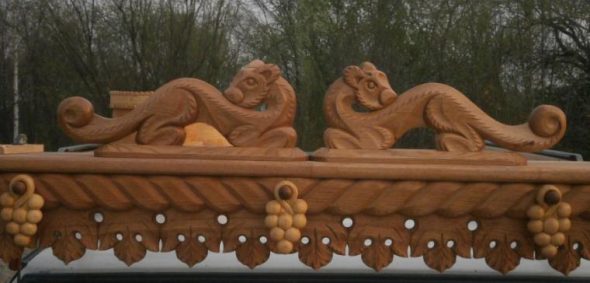
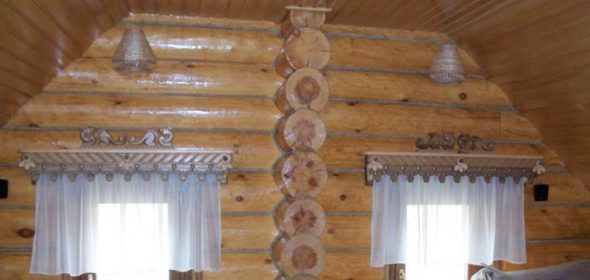
Barbell
- A board is taken, just like for the bracket.
- It is sawn into 25x25 mm square strips, the edges are rounded on a milling table, and a round base is obtained.
- the edges of the rod at a distance of 10 cm are reduced in diameter, equating to the size of the holes on the brackets, sanded and painted.
- Everything is varnished.
- The cornice is being installed and curtains are being hung.
As we can see, it is possible to make wooden cornices at home, but this requires skills and tools. Therefore, it is easier to buy them in a store.

